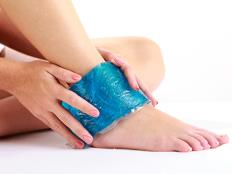You've Plateaued
Once upon a time, you notched a PR in every race you ran. These days? Either you're finishing in the same window every time or—ugh—you're getting slower, despite the fact that you usually hit your times in training. Consider this a sign that it's time to hit the pause button on your race lineup. "A plateau is usually your body's way of telling you to back off," says Beal. "You're probably pushing yourself too hard in workouts and showing up to the start of the race needing a break before it even begins." Bust out of your rut by recasting your routine—whether it's backing off on the speed work or decreasing your mileage—so you're racing fresh, not fatigued.
More: Bust Out of a Rut and Find New Motivation
You're Bored
One of the best parts about racing? The excitement that comes along with the experience. The nervous butterflies. The exhilarating panic that floods your body just before the gun goes off. So what's the fun of toeing the line with a ho-hum attitude? "In racing, an athlete should arrive at the start line with a healthy dose of anticipation," says Cami Stock, a coach for Wild Blue Racing in Colorado Springs. "Too much racing can take that excitement out of the equation and affect performance." So if you're not arriving at the start line ready to rock and roll, take a break from the racing arena, or try something different, like a triathlon, a trail race or a different distance. "Switching to something different puts a fresh spin on racing, kind of like heading to the start line for the first time," says Stock.
More: 10 Quirky Races You Should Try
You're Anxious
Your "A" race is just days away and you've been training for months. But instead of embracing the experience, you're losing sleep over it. If anxiety about racing is literally keeping you up at night, you're likely over-racing. "The stress of constantly racing can cause a great deal of anxiety," says Stock, who has worked with athletes who have experienced everything from involuntary weight loss to insomnia because of race-related nerves. One way to remedy this situation? Focus less on major milestones, like finally breaking 20 minutes in the 5K or nabbing that Boston qualifier, and pick some shorter, smaller, more achievable goals. "If you pick a few fun ways to challenge yourself throughout the season, you'll decrease your pre-race anxiety," says Stock.
More: 5 Tips to Overcome Race-Day Jitters
You're Too Hard on Yourself
Nothing's wrong with throwing yourself a (brief) pity party after a bad race. But if you're beating yourself up for days after a so-called race fail, you're doing more harm than good by continuing to compete. "Racing should never define you," says Stock. "I've seen runners who put their self-worth on the line for every race, which almost always results in failure." While trying out a new distance or event may help boost your confidence and mood, remember that racing isn't everything. "I have friends who love training but hate the pressure that racing entails. They will train for marathons and not run them. That makes them happy," says Beal. "In running and life you should do what makes you happy. You don't need a time on a clock to be validated."
More: On Running and Life: How Running Shapes Who We Are
 Sign up for your next race.
Sign up for your next race. - 2
- of
- 2
About the Author

Get ACTIVE on the Go


Couch to 5K®
The best way to get new runners off the couch and across the finish line of their first 5K.
Available for iOS | Android






Discuss This Article